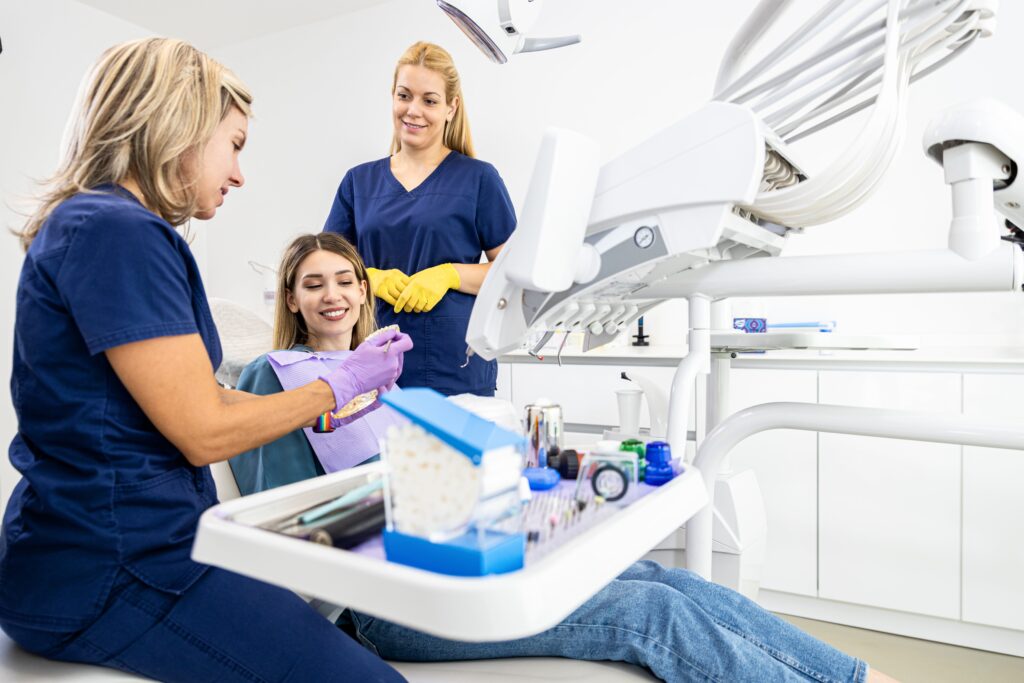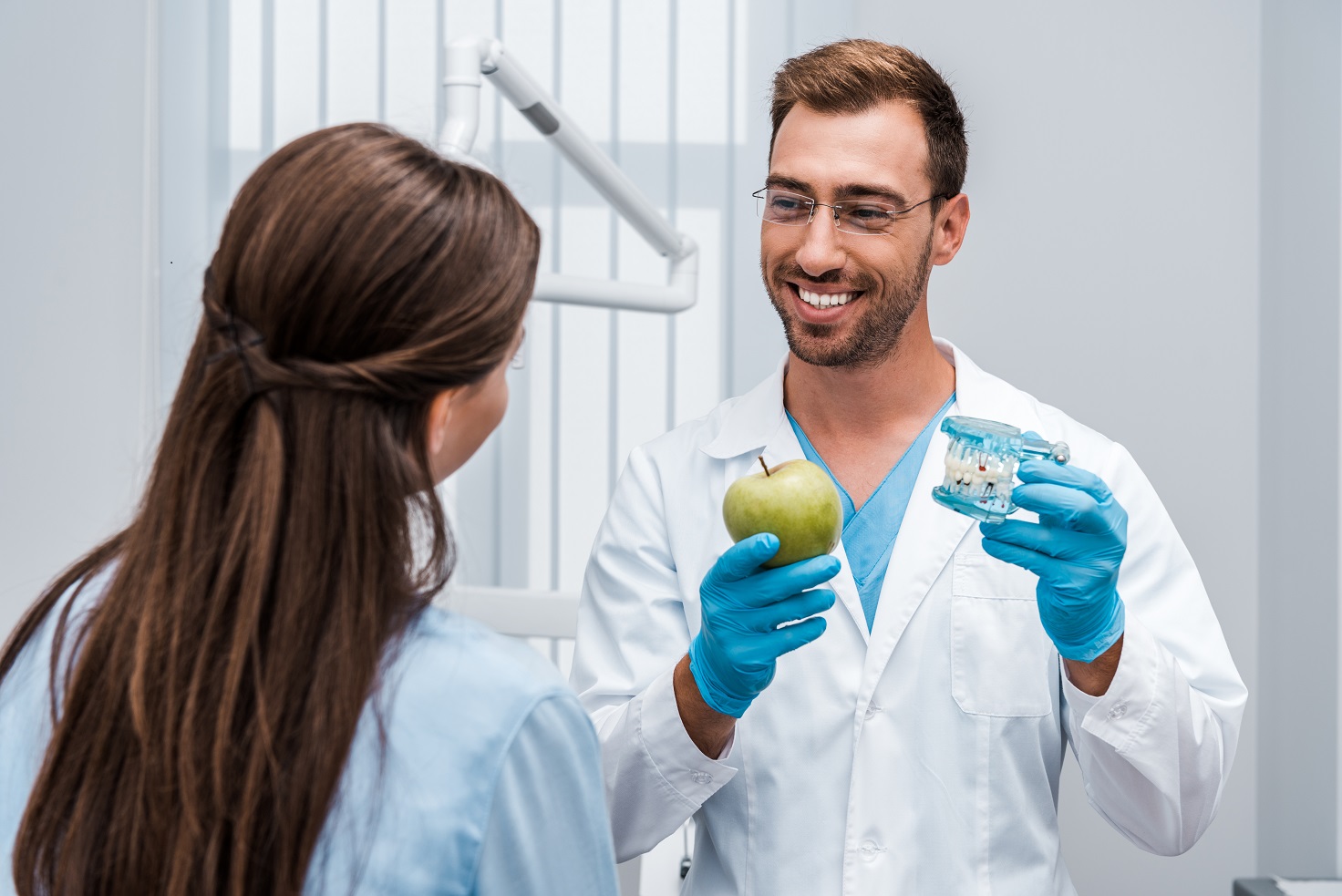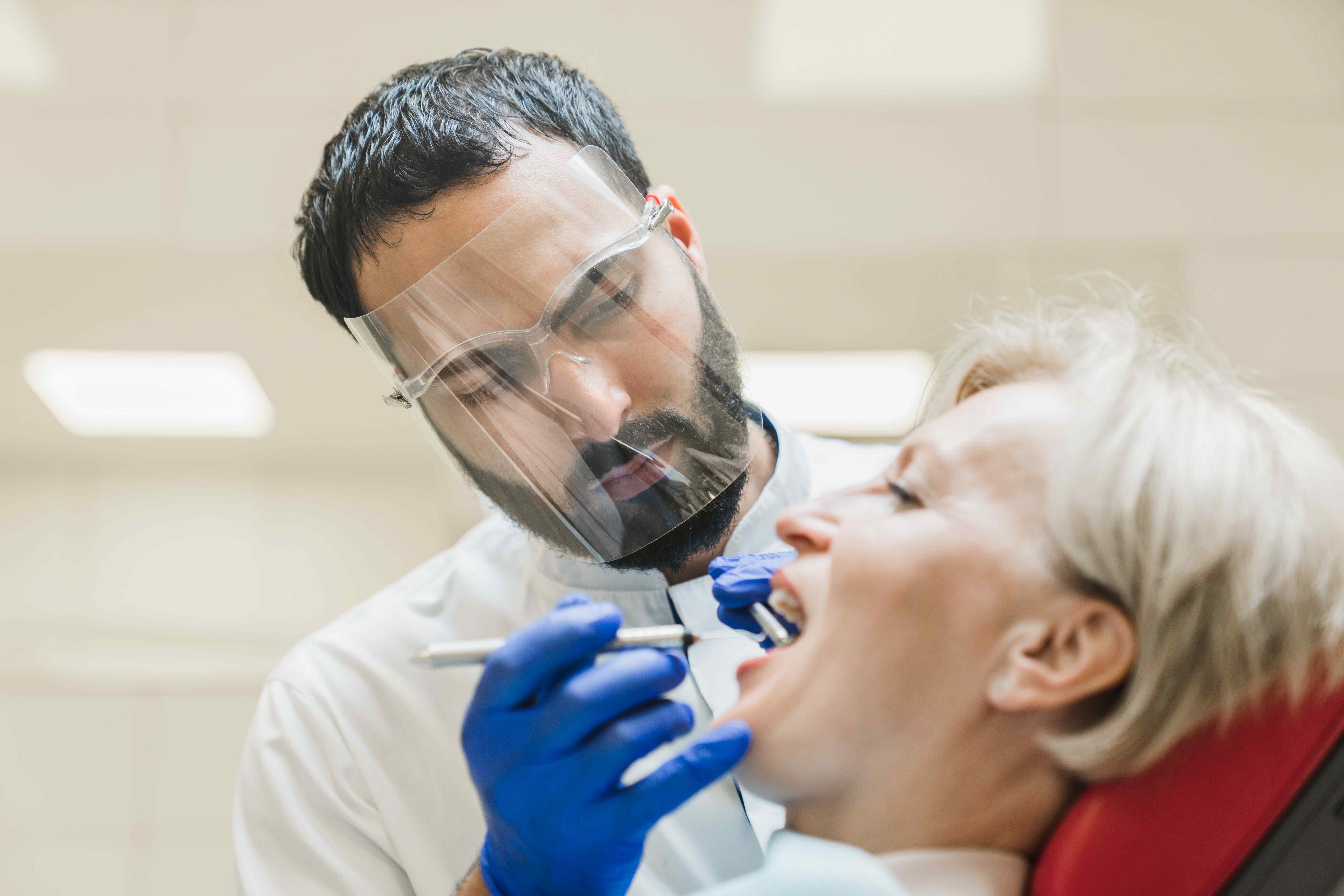Maintaining healthy gums involves more than just brushing, flossing, and regular dental visits. Increasing evidence…
Emergency Dental Care: When Should You Call Your Dentist?

Dental emergencies can happen suddenly and require immediate attention. It’s important to recognize the signs of a dental emergency and know when to call your dentist. Knowing what constitutes a dental emergency, and how to respond in an emergency situation, can help ensure you get the care you need quickly and safely. In this blog post, we’ll discuss what a dental emergency is and provide helpful tips on when you should call your dentist for emergency care.
What is considered a dental emergency?
A dental emergency is any situation that requires immediate attention from a dentist. This can include severe tooth pain, a broken or chipped tooth, a knocked-out tooth, or a dental infection. In general, any condition that is causing severe pain, bleeding, or swelling in your mouth is considered a dental emergency.
Urgent symptoms
It’s important to note that not all dental issues require emergency dental care. For example, a small cavity or minor tooth sensitivity can often wait until regular business hours to be treated. However, if you’re experiencing severe pain or other urgent symptoms, it’s best to seek emergency dental service as soon as possible.
Finding emergency dental care
If you’re not sure whether your dental issue requires emergency care, try searching for “emergency dental near me” or “24 hour emergency dental” to find a provider who can help you. Some dental offices offer 24hr dental care or emergency dental care USA, so it’s always a good idea to check your options before making a decision.
Overall, if you’re experiencing severe pain, bleeding, swelling, or other urgent symptoms, it’s important to call your dentist or seek emergency dental service right away. Don’t wait to get the care you need, as delaying treatment can lead to more serious dental issues down the road.
What are the signs of a dental emergency?
Here are five symptoms that indicate you may be dealing with a dental emergency:
Tooth loss
Whether it’s from an accident or a blow to the face, losing a tooth can be a serious issue. If the tooth is still intact, your dentist may be able to save it with prompt treatment.
Bleeding
If you’re experiencing persistent bleeding from your mouth—more than just occasional bleeding from brushing too hard—it could be a sign of a serious problem that needs immediate attention. Look for 24-hour dental care to seek treatment as soon as possible.
Severe pain
Pain that persists and intensifies could be a sign of a dental emergency. It’s important to get treatment as soon as possible.
Fever
A fever accompanying a toothache or dental problem could be a sign of an infection. Seek immediate medical attention if you experience this symptom.
Swelling or inflammation
Swelling in the face or around the gums is a sign that something is not right. If you’re experiencing this symptom, seek 24hr dental care as soon as possible.
Remember, not all dental problems require emergency care, but if you’re experiencing any of these symptoms, don’t wait to get help. Prompt treatment can prevent further damage and help you avoid more serious problems down the line.
What should you do if you have a dental emergency?
If you’re experiencing any signs of a dental emergency, the most important thing you can do is to contact your dentist right away. In most cases, dental emergencies require immediate attention in order to prevent further damage and ensure that you receive the appropriate treatment.
Explain your symptoms
When you call your dentist, explain the situation and describe your symptoms as accurately as possible. Depending on the severity of your condition, your dentist may advise you to come into the office immediately, or they may recommend that you take certain measures at home until you can be seen.
In some cases, such as severe bleeding or trauma, you may need to go to the emergency room. If you’re unsure whether your situation requires emergency care, don’t hesitate to call your dentist or seek medical attention. It’s always better to be safe than sorry when it comes to your dental health.
Treat your pain while you wait
It’s also important to take care of yourself while you wait for treatment. If you’re experiencing pain, take over-the-counter pain relievers as directed to help alleviate discomfort. Rinse your mouth with warm salt water to help reduce inflammation and soothe sore gums.
Be gentle with your mouth
Finally, avoid touching or biting down on the affected area, and be careful when eating and drinking. Depending on your situation, your dentist may recommend that you avoid certain foods or drinks until you can receive treatment.
Remember, the key to dealing with a dental emergency is to act quickly and seek professional care as soon as possible. With the right treatment and proper follow-up care, you can get back to smiling and enjoying good dental health in no time.
Why is it important to get treatment right away?
When it comes to dental emergencies, time is of the essence. Delaying treatment could lead to irreversible damage to your teeth and gums, as well as potentially more expensive and invasive procedures down the line.
In some cases, a dental emergency may even be life-threatening. For instance, an untreated tooth infection could spread to your jaw or other parts of your body, causing serious health complications.
Getting emergency dental care as soon as possible is crucial in preventing further damage and preserving your oral health. Luckily, many dental practices offer 24-hour emergency dental services, allowing you to get the care you need, when you need it.
It’s important to note that not all dental issues require immediate attention. However, if you are experiencing severe pain, swelling, bleeding, or have lost a tooth, it’s best to seek out emergency dental near me or contact your dentist immediately. Don’t wait until it’s too late.
Preventing dental emergencies
Preventing dental emergencies is always the best option, as it saves you the stress and pain associated with such emergencies. Here are some measures you can take to prevent dental emergencies:
Practice good oral hygiene
Brush and floss your teeth at least twice daily. Also, use an antimicrobial mouthwash to kill bacteria that cause gum disease and cavities.
Avoid hard foods
Hard foods such as candies, popcorn kernels, and ice can cause a dental emergency if they crack a tooth.
Wear a mouthguard
If you participate in sports, ensure that you wear a properly fitted mouthguard. A mouthguard can protect your teeth and prevent them from getting knocked out or broken during an impact.
Regular dental check-ups
Go for dental check-ups at least twice a year. During these visits, the dentist can identify potential issues before they turn into emergencies.
Limit sugary and acidic foods
Sugary and acidic foods and drinks can weaken tooth enamel, causing cavities, which can turn into a dental emergency if left untreated.
By following these tips, you can prevent dental emergencies and enjoy healthy teeth and gums. However, if you do experience a dental emergency, it is vital to contact your dentist immediately.
Frequently asked questions about dental emergencies
What types of dental emergencies require immediate attention?
If you are experiencing any of these issues, you should seek dental attention immediately:
- Fractured or broken teeth
- Knocked out teeth
- Severe toothache or pain
- Excessive bleeding from the mouth
- Injuries to the gums or mouth
What are the common signs of a dental emergency?
The most common signs of a dental emergency include:
- Swelling in the gums or mouth
- Bleeding
- Severe tooth pain or sensitivity
- Teeth that have been knocked loose
- Cracked or chipped teeth
What kind of treatment can be provided during a dental emergency?
Depending on the issue you are having and the severity of your symptoms, emergency dental treatment may include tooth extractions, root canal therapy, gum or bone grafting, bonding or fillings, and antibiotics to counter infections.
– Gum tissue or bone grafting
Are there any risks associated with delaying treatment for a dental emergency?
Delaying treatment for dental emergencies can cause the condition to worsen and become more difficult to treat. Worse, infections can spread to other parts of the body and potentially lead to other health complications.
How can dental emergencies be prevented?
Most dental emergencies can be prevented by maintaining good oral hygiene habits, such as brushing and flossing daily. People who play contact sports should consider wearing a mouthguard. And regular dental checkups and cleanings can catch potential issues early.
If you are experiencing any signs of a dental emergency, do not hesitate to call your dentist for immediate attention. It is crucial to receive treatment as soon as possible to prevent further damage or complications.


